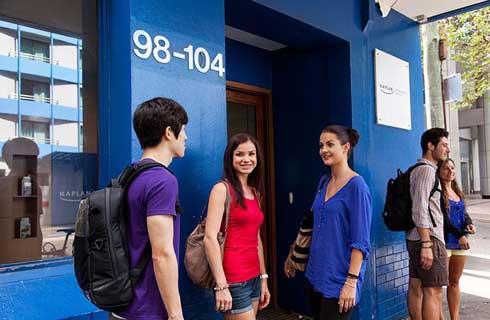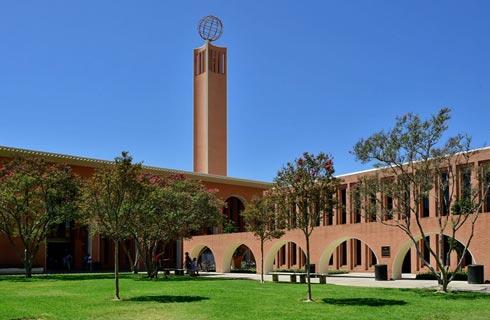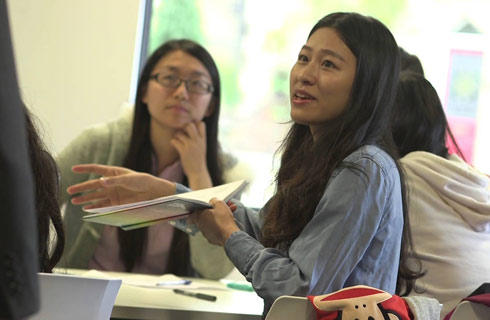电气工程学学士-电子,微波和光子器件
Bachelor of Science in Electrical Engineering - Electronic

学历文凭
Bachelor Degree

专业院系
Helen and John C. Hartmann Department of Electrical and Computer Engineering

开学时间

课程时长

课程学费

国际学生入学条件
IDP—雅思考试联合主办方

雅思考试总分
- 雅思总分:
- 托福网考总分:
- 托福笔试总分:
- 其他语言考试:
CRICOS代码:
申请截止日期: 请与IDP联系 以获取详细信息。
课程简介
Electronic, Microwave and Photonic Devices: This area concentrates on modeling and design tools for electronic devices, VLSI circuits, optoelectronics. Iit includes radio frequency (rf) microwave and lightwave technologies at the component and the system levels. Applications include communication systems (rfmicrowave and fiber optics), remote sensing, radar, sensors, etc.
相关申请
 预科
预科 奖学金
奖学金 实习机会
实习机会 在校学习
在校学习 跨境学习
跨境学习 校园授课-线上开始
校园授课-线上开始 在线/远程学习
在线/远程学习
开学时间&学费
学费信息仅供参考,请与IDP联系以获取详细信息
| 开学时间 | 时长 | 学费 | 地点 |
|---|
学校排名

世界排名501
数据源:
泰晤士高等教育世界大学排名
关于新泽西理工学院

新泽西理工学院(NJIT)为国际学生提供的不仅仅是学位。在那里,学生将获得实际专业经验,培养领导技能,置身于纽约大都市区这个不断发展的技术和商业创新中心,亲身体验那里的活力、文化和机遇。新泽西理工学院创建于1881年,位于美国新泽西州纽瓦克市中心,占地45英亩,距离曼哈顿只有20分钟路程。这为学生提供了极好的机会,能够在纽瓦克和纽约市进行实习、建立职业社交网络以及体验当地的文化。该地区不仅仅有世界一流的学者。在那里,学生可以去听音乐会,参观博物馆,享用全球美食,到充满活力的街区游览,与此同时,还能获得受用一生的人脉资源。新泽西理工学院有来自79个国家的1.2万多名学生,是公认的R1研究型大学,每年投入近2亿美元用于生物科学与生物工程、数据科学与管理、环境与可持续性、材料科学与工程以及机器人与机器智能等跨学科类的创新和研发。新泽西理工学院一直位居美国公立大学50强、国立大学100强之列(《美国新闻与世界报道》)。该校还因经济向上流动性而名列美国公立大学之首(《福布斯》、《纽约时报》)。新泽西理工学院通过实践学习、带薪实习以及与行业的密切合作培养毕业生为迎接现实世界的冲击做好准备。在国际学生的整个学习过程中,该院一路相伴为其提供支持,从学业咨询到移民支持,确保国际学生不仅为第一份工作,而且为在快速发展的全球环境中担任领导角色做好准备。新泽西理工学院拥有充满活力、具有多元文化的校园,致力于帮助学生取得成功,为学生获得成就、把握机遇以及终身成长打开了大门。
本校相关课程

机械工程哲学博士
学历文凭
Ph.D.
开学日期
课程费用总额


Doctor of Philosophy in Industrial Engineering
学历文凭
Ph.D.
开学日期
课程费用总额


Doctor of Philosophy in Electrical Engineering
学历文凭
Ph.D.
开学日期
课程费用总额


Doctor of Philosophy in Computer Engineering
学历文凭
Ph.D.
开学日期
课程费用总额


数学科学哲学博士
学历文凭
Ph.D.
开学日期
课程费用总额


交通哲学博士
学历文凭
Ph.D.
开学日期
课程费用总额

其他相关课程

电气与计算机工程哲学博士
 滑铁卢大学
滑铁卢大学学历文凭
Ph.D.
开学日期
课程费用总额


电气工程学士学位
 多伦多都会大学
多伦多都会大学学历文凭
Bachelor Degree
开学日期
课程费用总额


电子工程技术员文凭
 尼亚加拉学院
尼亚加拉学院学历文凭
Bachelor Degree
开学日期
课程费用总额


电子工程技术高级文凭(合作社)
 尼亚加拉学院
尼亚加拉学院学历文凭
Bachelor Degree
开学日期
课程费用总额


电子工程技术员文凭
 德恒学院
德恒学院学历文凭
Bachelor Degree
开学日期
课程费用总额


电气工程技术员文凭
 德恒学院
德恒学院学历文凭
Foundation for Undergraduate
开学日期
课程费用总额










 美国
美国